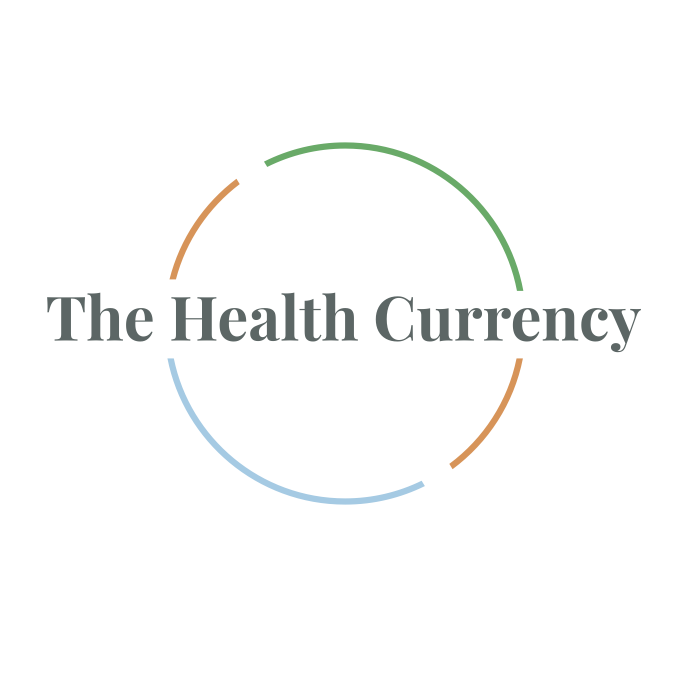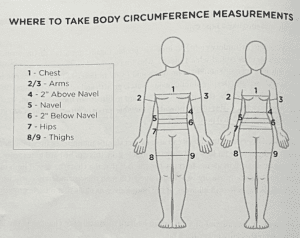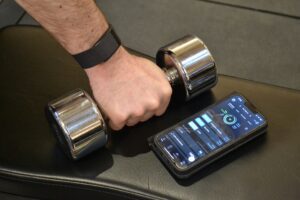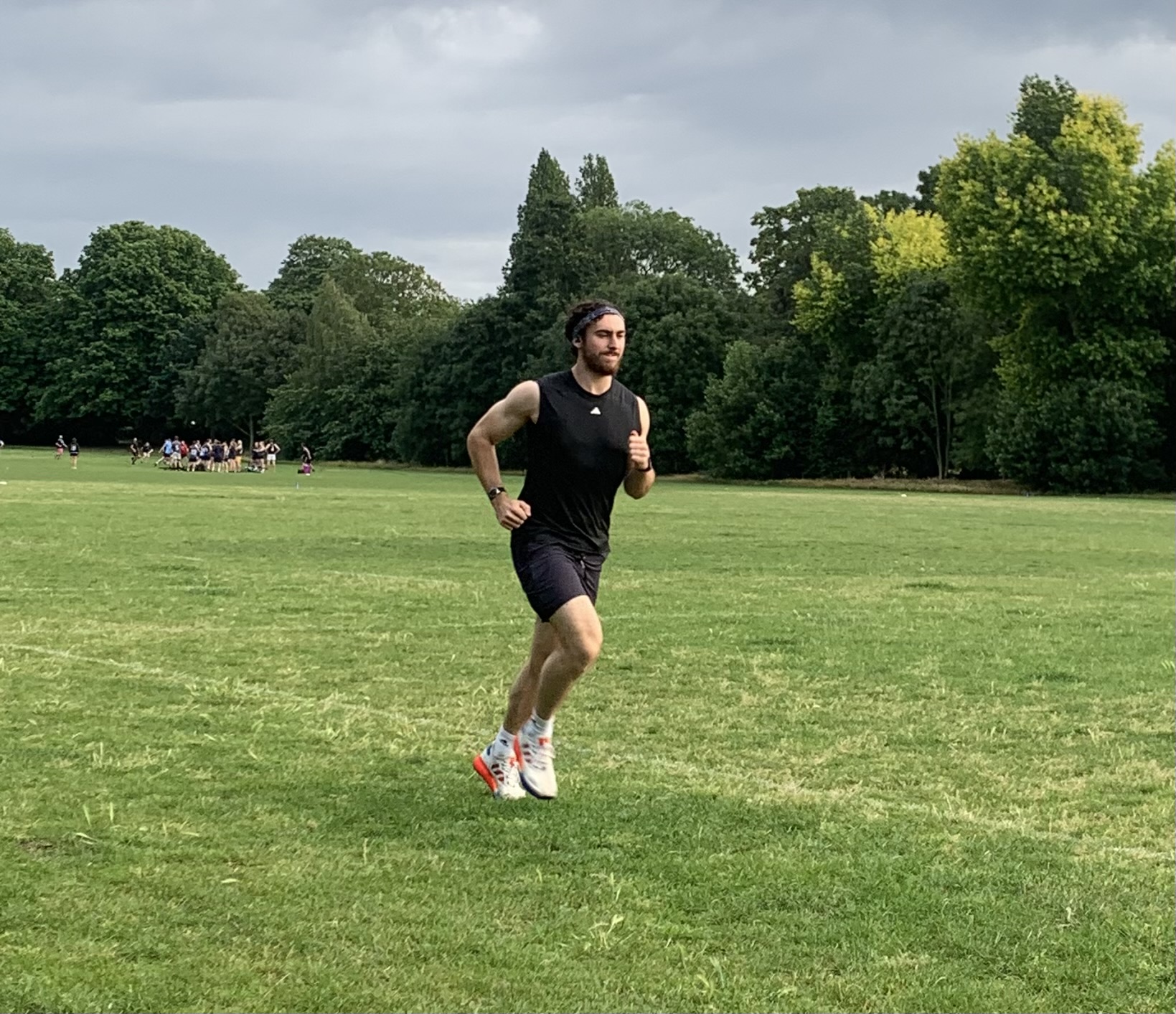Is Calorie Counting Even Necessary?
In short, the answer to this question depends on you as a person and your specific goals. There’s more than one way to skin a cat, and there are many different tools that can be utilised effectively in the pursuit of weight loss. For most people interested in fitness and getting healthier, they will have the goal of either gaining muscle and/or losing fat. When choosing the tools that you are going to use in the pursuit of these fitness goals, it’s important to consider what will work for you as an individual and what will help you achieve these goals more effectively. Ultimately, this is what will determine whether calorie counting will be a useful tool for you.
Who Shouldn’t Track Calories?
For some individuals, there is strong evidence to suggest calorie tracking can be problematic. If you are someone with dysfunctional eating patterns, an eating disorder, hyperawareness of your body then tracking macros may lead to more stress, more anxiety and more dysfunctional eating. For people suffering from anorexia and bulimia for example, I’d strongly recommend seeking help and guidance from a healthcare professional before you decide to try methods like calorie counting. For these groups of people, calorie counting can be triggering and may even cause further harm. Therefore, individuals with eating disorders are a prime demographic for whom caution is warranted. There is also research from Klos and colleagues that suggests the harmful effects of monitoring through scale use are potentially gender specific. They reported that more frequent self-monitoring (via self-weighing) had more of an adverse phycological impact on women who were more preoccupied and concerned with bodyweight than men who experienced greater body satisfaction. Based on these points, it is clear that calorie counting may not be a helpful tool for everyone, and in specific cases should used with caution or even avoided.
Fat Loss Tools Should Be Individualised
Based on the aforementioned words of caution, is is clear that fat loss tools and methods should be tailored to the individual. Indeed, some people will do well with a certain degree of micromanagement and quantification. These are likely to be the same people who enjoy tracking their gym progress (progressive overload) using excel spreadsheets and may be described as more “detail orientated” by nature. On the other hand, many other people will resent the process of writing down or recording everything they eat, even for a short period of time. For time poor parents and businesspeople (or both), the idea of tracking calories on top of looking after the kids and work is an extremely daunting and likely unsustainable task. Therefore, it is important to individualise the approach of tracking and self-monitoring to help drive long lasting results.
Alternative Methods To Calorie Tracking
Let’s say you are an individual who doesn’t want to track calories for even a short period of time (say 2 weeks), there are other actions you can take to help to build muscle or lose fat. For beginners or those coming back from periods of inactivity, muscle gain will likely occur in a well-designed resistance training program, regardless of whether macros are accurately monitored via tracking apps. Implementing consistent weight lifting sessions (3x per week) can also help individuals gain awareness of their internal hunger cues, as their bodies start telling them to consume more food to provide the necessary energy needed to grow new muscle. Regular Exercise and lifting weights in particular (3x per week), has this this amazing way of auto regulating hunger signals, helping you to adopt more structured eating patterns without the need to rely on calorie tracking.
Furthermore, by focusing on eating more wholefoods you can reduce your calorie intake without using calorie tracking apps. Eating mainly wholefoods, increasing fibre intake and cutting out excess processed foods will provide more satiety with less energy. Ultra processed foods (think sausage rolls, cookies & pastries) are hyperpalatable by design, and therefore are easy to overconsume without feeling satiated. I challenge you to eat 300g of chicken breast and 300g of sausage rolls if you don’t believe me. After eating both, consider that 300g of sausage rolls = circa 1,000 calories vs 300g of chicken breast = circa 500 calories.
Additionally, if you don’t want to track calories you can also focus on hunger signals when eating meals. If you want to gain weight (say you are looking to put on muscle) then simply focus on eating until you feel more full after meals. Conversely, if you want to lose weight then focus on feeling less full (say 70/80%) after your meals. Using your hunger signals as feedback can result in increasing or decreasing your daily calorie intake, resulting in weight gain/weight loss (depending on your goals).
When Is Calorie Tracking Helpful?
So far, we’ve established that calorie tracking isn’t for everyone and that there are ways to gain muscle and lose weight without using it as a tool. With that said, the research suggests that calorie/portion tracking can help increase the chances of sustained weight loss maintenance, and I agree. Many people have little to no awareness of macronutrients, micronutrients and fibrous foods as a starting point. Calorie tracking apps like My Fitness Pal (MFP) teach users about the different macronutrients (fats, proteins, carbs) they are consuming in their diet and where they are falling short. When starting out on your fitness journey, apps like MFP teach you how to structure a basic diet for health and performance by helping you to discover which foods have high macronutrient density. Most people have never studied to be a nutritionist or dietitian and therefore likely have very little pre-existing knowledge of what foods are high in protein, fat, carbohydrates and fibre etc. Apps like MFP also teach you which foods you might want to moderate in your diet, due to them contributing less to your micronutrient requirements (e.g., ultra-processes foods).
Additionally, if you haven’t tracked calories for a while and want to pursue a new goal (e.g., gaining 10 lbs of muscle), then returning to tracking for a period of time will be helpful in your pursuit of this specific goal. Life is full of many variables including sleep, stress, metabolism changes, changing activity levels etc, so revisiting tracking every once in a while provides valuable insight into newly adopoted habits/eating tendencies that you are unaware of that may be hindering your progress. For example, you may think you eat a high protein diet, only to discover that you are consuming 30g less than your goal on a daily basis, and therefore slowing muscle growth progress. To read more on the benefits of calorie tracking, you can read my previous post here.
In Summary
Calorie tracking isn’t a way of life, it’s both an educational tool and method that can be used to help achieve specific weight gain/loss goals. Will it be helpful for everyone? Likely not. Should individuals with eating disorders be careful about tracking calories? Absolutely. Individualisation should always be applied to healthcare and fitness, and the same applies to tracking calories. If you have a history of dysfunctional eating, I’d strongly recommend speaking to a healthcare professional before implementing calorie tracking. But if you are someone who has no history of dysfunctional eating and are looking for tools to improve your results, I’d recommend using calorie tracking apps (like MFP) initially for a couple of weeks to accelerate your learning curve. Once you’ve learned how to eyeball portions and eat a balanced diet of proteins, fats and carbs around your maintenance, then you can wean off calorie tracking for the long run. I’ll be following up with strategies to help with weaning off the micromanagement of tracking intake in a future post.







